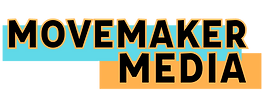Self-Awareness: The Unsung Hero of Emotional Intelligence
- lindsaympost
- Dec 31, 2024
- 3 min read

If emotional intelligence were a superhero team, self-awareness would be the brains of the operation. It’s not as flashy as empathy or as action-packed as social skills, but without it, the whole operation falls apart. Self-awareness is the foundational skill that helps you navigate life’s emotional rollercoaster—and let’s face it, we’re all on the ride.
So, what is self-awareness, really? Simply put, it’s your ability to recognize and understand your own emotions, thoughts, and behaviors. It’s the mental mirror you hold up to yourself, saying, “Oh, so that’s why I reacted that way.” It’s also the first step in managing those reactions—and, ultimately, improving how you interact with the world.
Let’s take a closer look at self-awareness, why it matters, and how you can level up your own self-awareness game. (Spoiler alert: It’s a game-changer in your personal and professional life.)
Why Self-Awareness Is a Big Deal
Self-awareness is like having a GPS for your emotions. It keeps you from getting lost in the land of overreactions, misunderstandings, and regret-filled emails sent at 2 AM. It’s what helps you:
Recognize emotional triggers before they hijack your mood.
Understand your strengths and weaknesses so you can play to your strengths and work on areas that need improvement.
Communicate effectively by knowing how your words and tone come across to others.
Make better decisions by understanding the emotions behind your choices.
In short, self-awareness helps you become the best version of yourself—at work, at home, and everywhere in between.
The Workplace: Where Self-Awareness Shines (or Flops)
At work, self-awareness is like your secret weapon. It can make the difference between being a team player and being that coworker who sends caps-lock emails about coffee cups left in the sink.
Here are a few ways self-awareness shows up in the workplace:
Body Language: Are you slouching in meetings? Crossing your arms during feedback? These subtle cues speak volumes about your mindset—sometimes louder than your words.
Tone of Voice: Before you hit send on that voice memo, listen back. Do you sound supportive, or like you’re auditioning for the next season of “Bad Bosses?”
Written Communication: Emails filled with exclamation marks might make you sound overly eager (“Thanks so much!!!!!!!”), while overly curt messages can come across as rude. Pro tip: Keep it professional, but human.
Self-awareness also keeps office drama at bay. When you understand your own emotions, you’re less likely to let someone else’s bad mood ruin your day.
Self-Awareness at Home: Fix Your Face
Let’s get real: Self-awareness isn’t just for the office. At home, it’s the difference between a harmonious dinner and a passive-aggressive silence fest. How many times have you said, “I’m fine,” while your face screamed, “I’m definitely not fine”?
Being self-aware means noticing these disconnects and addressing them. It also means catching yourself before snapping at your roommate because you’re hangry (we’ve all been there). In parenting, it means modeling emotional intelligence for your kids—because let’s face it, they’re little emotional sponges.
How to Build Your Self-Awareness
Good news: Self-awareness isn’t something you’re born with—it’s something you can develop. Here’s how:
Practice Reflection: Take a few minutes each day to think about your emotions and reactions. What triggered them? How did you respond? What could you do differently next time?
Ask for Feedback: Sometimes, we’re too close to ourselves to see clearly. Ask a trusted friend, colleague, or family member for honest feedback on how you come across.
Mind Your Body: Pay attention to physical cues like clenched fists, a tight jaw, or racing thoughts. These are often signs that an emotion is bubbling under the surface.
Journal It Out: Writing down your thoughts and feelings can help you process them more objectively. (And if you want to talk it out, therapy is great, too!).
Meditate: Mindfulness meditation helps you tune into the present moment, making it easier to notice your emotions without judgment.
The Ripple Effect of Self-Awareness
When you’re self-aware, it doesn’t just benefit you—it benefits everyone around you. You’ll:
Communicate more clearly with colleagues, friends, and family.
Build stronger, more authentic relationships.
Inspire others to level up their own emotional intelligence.
Self-awareness is contagious in the best way possible. The more you practice it, the more you’ll notice others around you doing the same. And that’s how we create a world where empathy, understanding, and collaboration thrive.
Final Thoughts
Self-awareness isn’t about being perfect—it’s about being real. It’s about catching yourself in the act of being human and deciding to do better. Whether you’re leading a team, navigating a relationship, or just trying to keep your cool in rush-hour traffic, self-awareness is your ultimate ally.
So, the next time you catch yourself rolling your eyes in a meeting or typing an email that’s a little too spicy, pause. Reflect. Adjust. Because the journey to emotional intelligence starts with knowing yourself—and trust me, it’s a journey worth taking.e world, one emotionally intelligent moment at a time.y way next.✌️
.png)




Comments